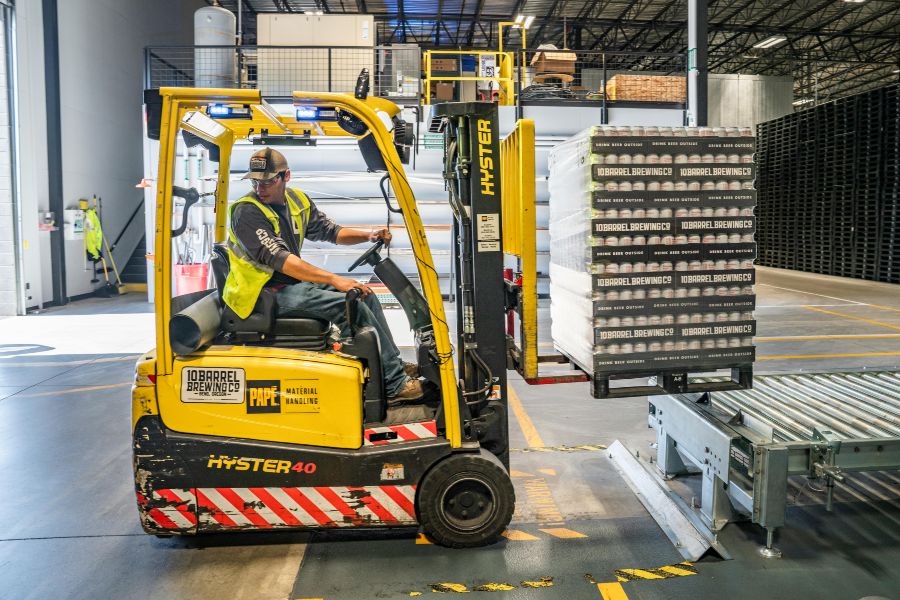Although the origins of “Lean” are wide and complex, none could deny the primary influence of the “Toyota Production System” but it draws upon a body of accumulated knowledge and refined methods from a century of work from many the most successful operations organizations and industrial thinkers of all time.
Today, “Lean” manufacturing and management systems are applied all around the world, far beyond its initial forming ground of industrial operations. This surge in popularity has created a bit of a chaotic “lean” landscape as practitioners start using the concept with their own “special sauce,” and definitions start to diverge and get a little confusing.
But don’t worry, I’m here to lay the fundamental characteristics and principles out of what it truly means to be “Lean” in your business operations.
We’ll cover the fundamentals of Lean by giving you 25 key characteristics that should be part of any proper definition to help you identify Lean principles regardless of which interpretation you first came across. So, without further ado, from the fabulous book, “The Lean Toolbox” here are the 25 Lean Characteristics:
DISCOVER THE “FORGOTTEN FUNDAMENTALS” OF OPERATIONS MANAGEMENT”
The 25 Characteristics of “Lean”
- Customer Focus: Maximizing value for your “customers” should be the central goal of the operation, focus on understanding customer requirements and their expectations.
- Purpose: Your vision, mission, and strategies need to be aligned. You should have a clear purpose behind your system.
- Simplicity: Complexity can be a seductive mistress; however, the simplest solution is likely the better one. Whenever possible, Lean tells us to pick simplicity.
- Waste: Identify any process that does not add value in the eyes of your “customers” and eliminate it.
- Process: Focus on the production process from one end to the other.
- Visibility: Apply “Visual management”, when possible, make your processes as clear and transparent as possible for all to “see”.
- Regularity: Intertwined with the flow and evenness characteristics, you want your processes to be regular and smooth with no surprises. A steady routine; think of the order and predictability of ballet rather than an explosive, chaotic excitement of a football match.
- Flow: Manufacturing processes should move smoothly at the rate of customer demand.
- Evenness: Keeping production frequent in small, even batches; ensuring a level schedule.
- Pull: Focusing on “actual” demand from upstream rather than projections. Only producing what is required, reducing inventory and overproduction. Stay away from push supply chains.
- Postponement: Delaying activity and variety as late as possible. “Just In Time”, not “Just In Case”. When possible, late customization.
- Prevention: Getting ahead of mistakes can save you a lot of time and money. Focus on preventing problems and quality issues rather than correcting them after the fact.
- Time: Your production timing should be aligned with customer demand. Reduce lead time and cycle time whenever possible and continuously.
- Improvement: Continuous Improvement (Kaizen) is vital and needs to be everyone’s job. Whether in the form of incremental improvements or major breakthroughs, both are an absolute necessity for the long-term success of a company.
- Partnership: Focus and use teams rather than individuals, lean is about partnerships. United at every level, from departments all the way to your suppliers.
- Value Network: Work with your customers and suppliers, not against them.
- Gemba: This crucial Japanese word refers to going where the action is actually “happening”, (typically the plant floor) and not just talking from the offices. Lean gives great weight to being close to the production line, talking to first-line workers, seeing the process yourself so that you can actually understand the real operational situation and issues.
- Questioning and Listening: An open and supportive culture is key. Everyone, at every level, should be able to ask questions and be heard.
- Variation Reduction: Standardization of your practices is key in a Lean operations environment. Variation is the great enemy and you should actively seek to reduce it. Variation in capacity, demand, process, timing and method.
- Avoiding Overburden: Avoiding overloading resources and creating huge queues of work to build up within the system. Manage the “flow” through the system. Beware of scheduling “push” and give attention to proactively reducing external and internal variation of demand.
- Participation: Involve as many people as possible at the lowest level possible, with top support.
- Thinking Small: The smallest capable machine, not monuments that force the company to rely on it.
- Trust: Building trust by being true to your commitments and through transparency with all stakeholders.
- Knowledge: Building, expanding, and sharing the company’s explicit and tacit knowledge.
- Humility: Aristotle summarized it best with his famous quote, “the more you know, the more you realize you don’t know.” Learning begins with a healthy dose of humility, and Lean operations require a lot of learning.
Wowza! What a list! “Womack and Jones” would be proud. Lean operations principles bring simplicity and clarity to the oh-so-often over-complicated and confused modern organization.
If you can keep your focus on these principles of Lean operations, you too can unlock its immense power for your career and your operations!
Lean theory and practical implementation are big topics with a breath of further details and valuable actionable experience. If you are interested in expanding your knowledge on the topic, I first suggest you check out my 3hour online video training course: Lean Manufacturing A-Z and if you want a true practitioner’s reference book, I encourage you to get a copy of the book, “The Lean Toolbox”. I’m not affiliated or sponsored by them but it’s just a great read and it was the inspiration for this article.
Crack On!








